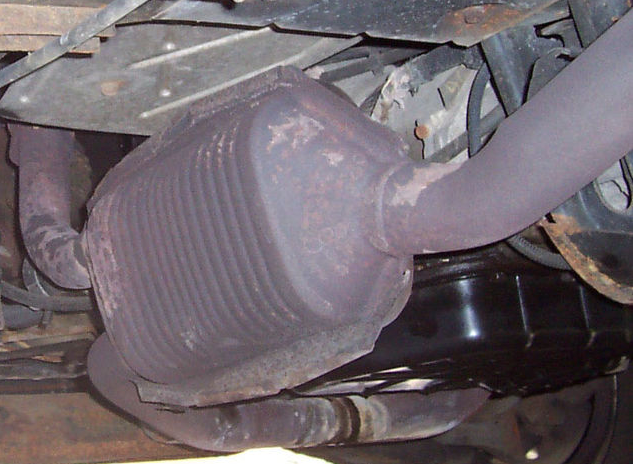latest
Explicit images and catalytic converter bills get late-session revival in Senate

By Chris Lisinski
DEC. 29, 2022…..Lawmakers could make a late-session push to crack down on distribution of sexually explicit content without a subject’s consent, often referred to as “revenge porn,” after the Senate on Thursday surfaced a bill less than a week before the term ends.
Amid a flurry of action in both branches to get mostly local bills across the finish line, the Senate gave initial approval to legislation designed to close a loophole in state law that makes prosecution of revenge porn cases nearly impossible. The bill would also give law enforcement more options for handling minors who exchange explicit pictures and videos of themselves and their peers.
Several more votes will be required to get the legislation to the desk of outgoing Gov. Charlie Baker, who listed legislative inaction to rein in revenge porn as one of his biggest regrets during his two terms in office.
The window is limited: the Senate gaveled out Thursday for a long holiday weekend and does not plan to meet again until Tuesday, which is the last day of the 2021-2022 session. When those Tuesday sessions end, any bills that have not made it to the governor’s desk will effectively die and sponsors will need to relaunch their efforts from square one.
The bill the Senate advanced Thursday would create a new criminal offense for distributing sexually explicit visual materials of another person without their consent and quintuple the allowable criminal harassment fine from $1,000 to $5,000.
It also makes clear that “a person’s consent to the creation of visual material shall not constitute consent to the distribution of the visual material.”
The House unanimously approved a similar teen sexting and revenge porn bill (H 4498) in May.
Survivors and victims’ rights advocates warn that revenge porn has grown increasingly common in the digital age, subjecting people — particularly women — to excruciating social and emotional harm often inflicted by former romantic partners.
During the House’s debate in May, reform supporters said 48 other states have clear laws on the books banning revenge porn, but not Massachusetts. Part of the problem, they said, is a 2005 Supreme Judicial Court ruling that made it difficult for prosecutors to pursue charges unless three or more incidents took place.
Baker and Lt. Gov. Karyn Polito pressed lawmakers for several years to address the spread of revenge porn, often convening roundtable events with survivors who shared their experiences of former partners publicly posting intimate images and videos that they meant to stay private.
“We’re one of only two states in the country in which it’s not a crime to make publicly available on the internet pictures that you take of somebody when you had their permission to do so,” Baker said during a GBH News radio interview in May. “If you’ve ever heard women talk about what this does to them, you’d understand why it’s a crime in 48 states and you would not understand why it’s not a crime in Massachusetts.”
In an interview with the News Service this week, Baker mentioned the revenge porn enforcement measure as one of the bills whose passage he wishes he could have secured during his time in office.
Like the House-approved bill, the Senate version seeks to address revenge porn while also reforming how the judicial system treats minors who share explicit materials.
The legislation would require a minor who illegally possesses or disseminates explicit visual material to be diverted, unless a court finds that failing to proceed with an arraignment poses serious harm. Those minors also would not be required to register as sex offenders.
“Lawmakers who drafted child pornography or obscenity laws years ago did not write them with these types of youthful indiscretions in mind,” Rep. Jeff Roy said in May.
The bill also calls on the office of the Child Advocate to craft a new educational diversion program for adolescents about the consequences of sexting and posting nude images and videos online, and requires the state Department of Elementary and Secondary Education to “encourage” districts to tackle the topic, according to a Senate Ways and Means Committee summary.
Senators on Thursday also gave initial approval to a redrafted bill imposing new regulations on transactions involving catalytic converters (S 3169).
The Senate bill requires licensed entities to collect and preserve extensive records on catalytic converter purchases, including contact information for sellers, prices paid and legal documents demonstrating ownership, according to a committee summary. Businesses would need to make that information available to local police chiefs.
The House approved a similar bill (H 5356) in October.
Massachusetts lawmakers frequently leave their work right up until, and in many cases after, deadlines, leading to scrambles in the closing days and hours to wrap up all kinds of business that had been procrastinated for months.
In addition to advancing the explicit images and catalytic converters bills, the Senate on Thursday sent Baker more than a dozen local bills that municipal leaders have been seeking for months.






You must be logged in to post a comment Login